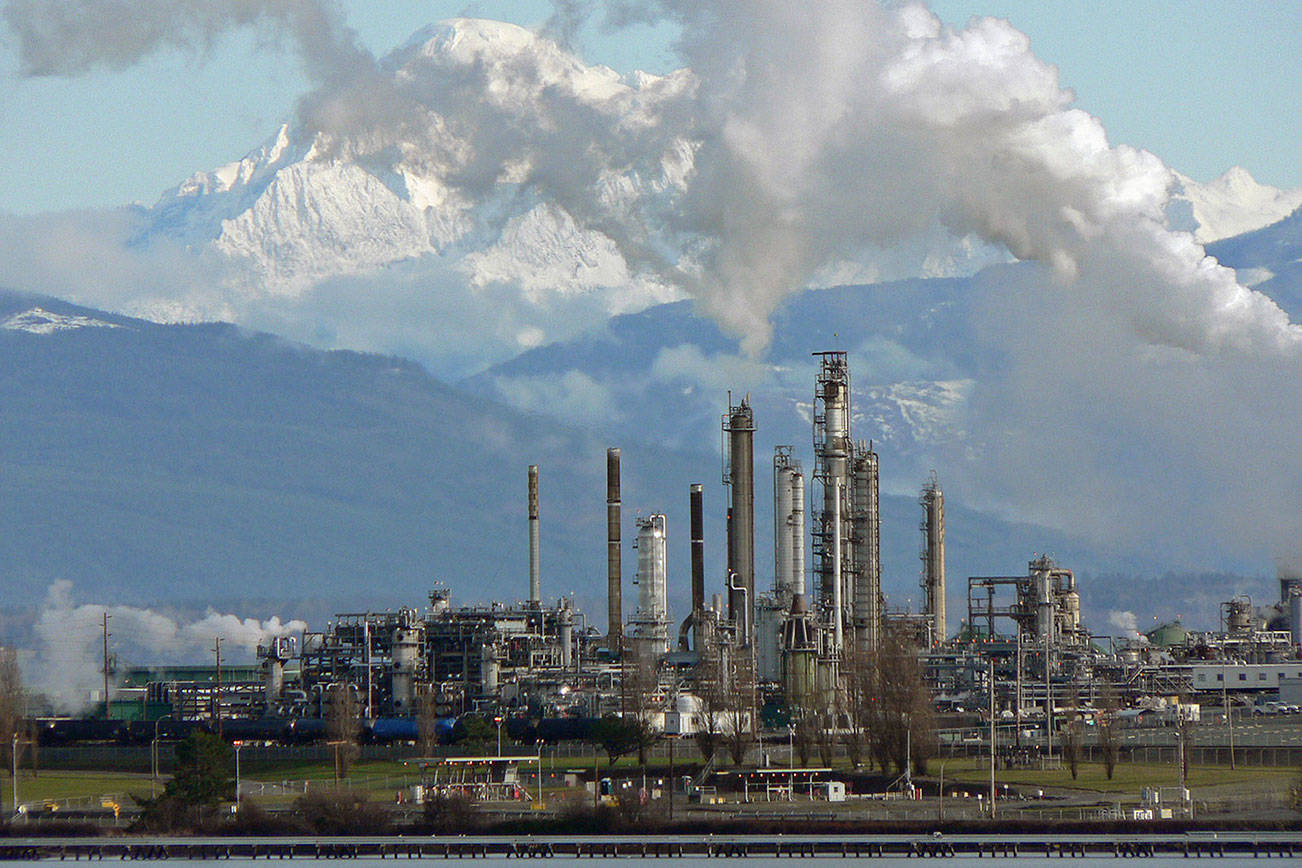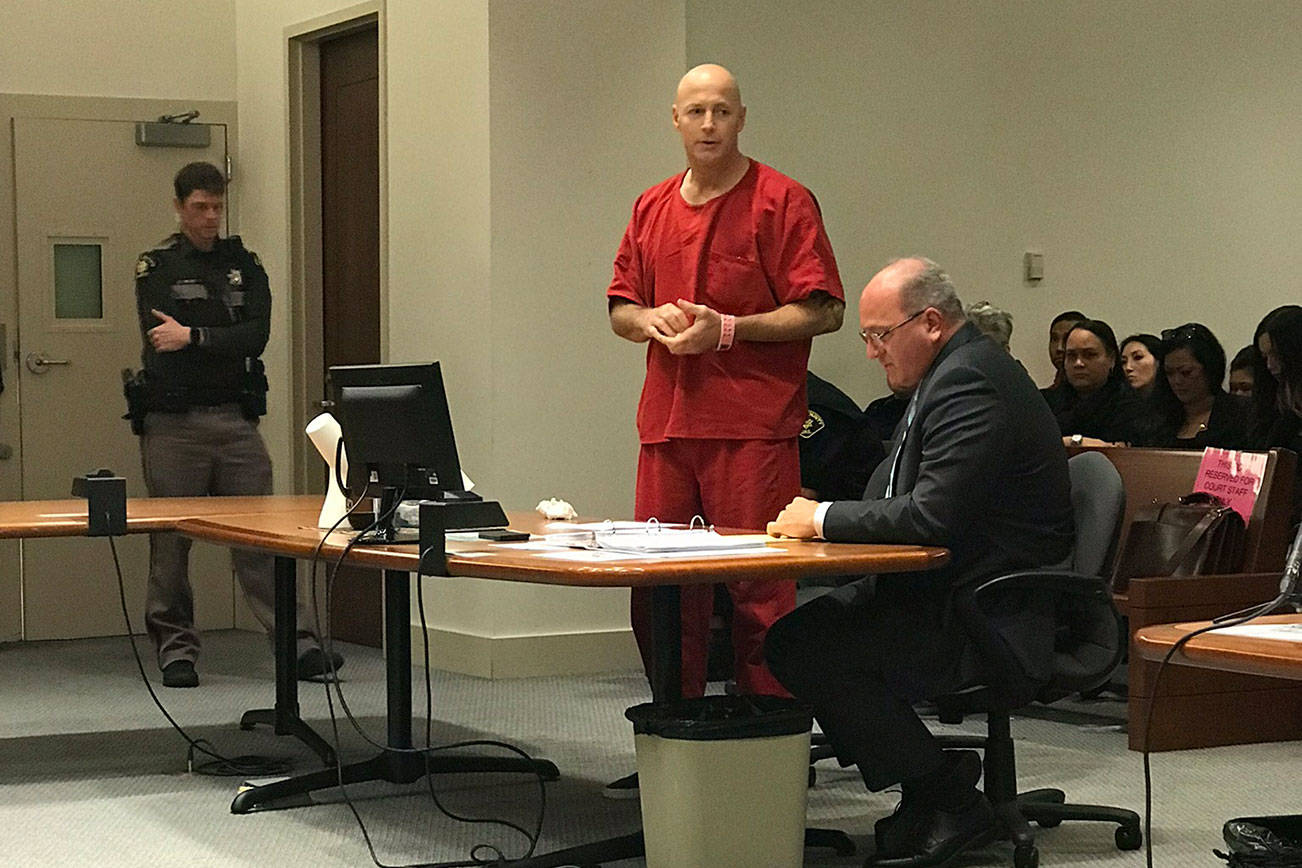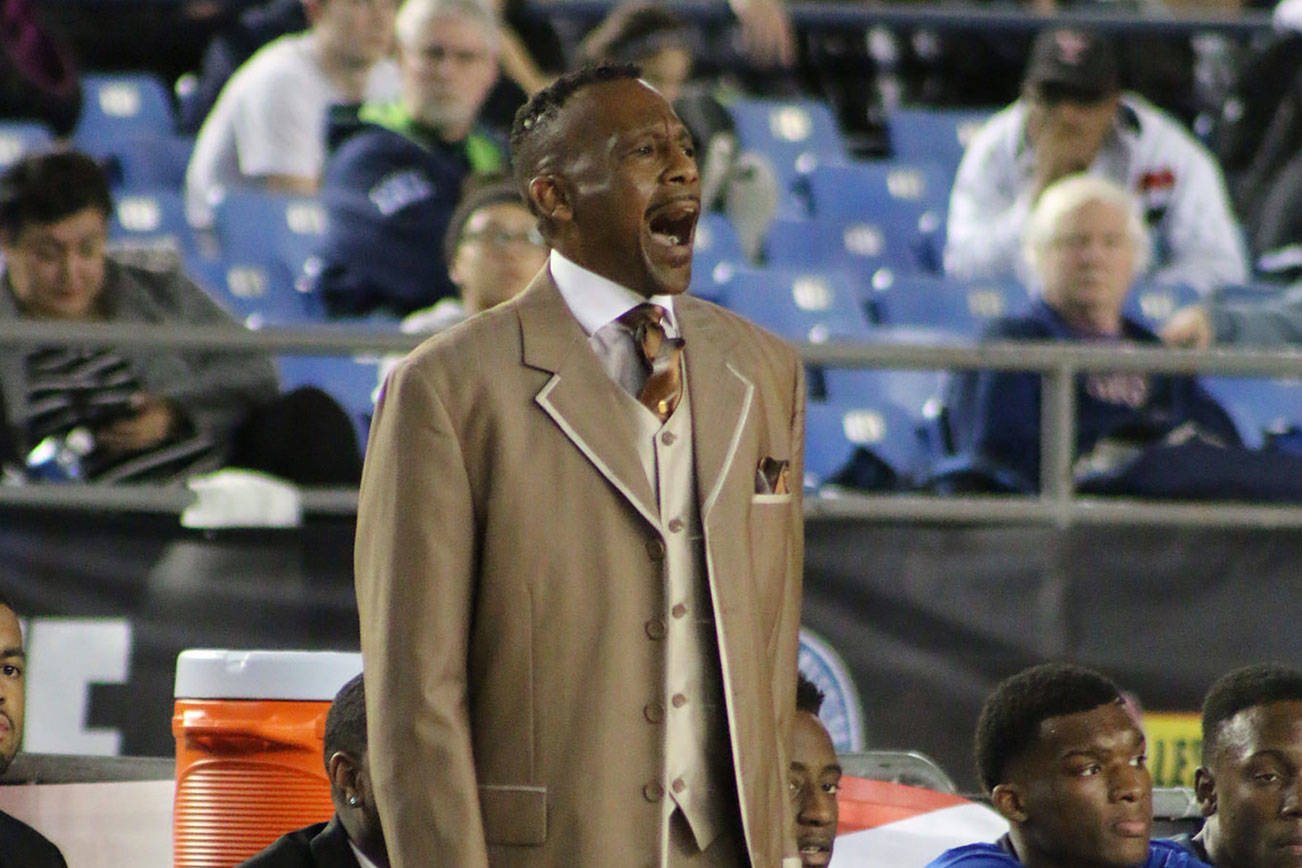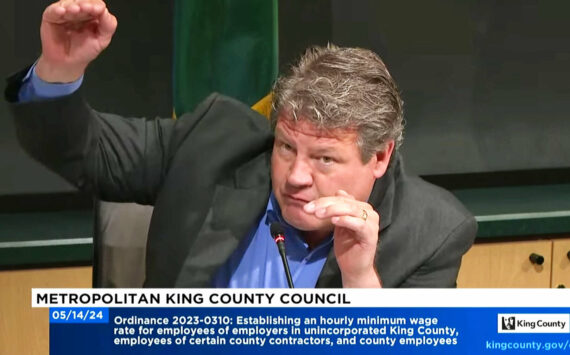King County is swinging big with its latest lawsuit. On May 9, the county filed a suit against five major oil companies—Royal Dutch Shell, ExxonMobil, BP, Chevron, and ConocoPhillips—alleging that the corporations knew about the impacts of fossil fuels on climate change, but downplayed them to the public. And some legal experts think that the county has a fighting chance.
Three allegations make up the pillars of the suit. The first is that fossil fuel combustion is the primary driver of climate change. Next, the county claims that these five companies knew about the impacts of fossil fuels on global warming. The third element is that, despite this knowledge, the companies committed to their fossil fuel-based business models and employed intentionally misleading public campaigns that downplayed the environmental dangers of fossil fuels.
“[The] defendants, notably, did not simply produce fossil fuels. They engaged in large scale, sophisticated advertising and communications campaigns to promote pervasive fossil fuel usage and to portray fossil fuels as environmentally responsible and essential to human wellbeing—even as they knew that their fossil fuels would contribute, and subsequently were contributing, to dangerous global warming,” the suit reads. “Defendants’ promotion of fossil fuels has also entailed denying mainstream climate science or downplaying the risks of global warming.”
In 2015, reports emerged that ExxonMobil knew about the role of fossil fuel combustion in climate change going back decades despite their public expressions of doubt about climate science.
The suit argues that the oil companies, through their actions, have created a severe “public nuisance,” a legal offense in which the public, rather than an individual, suffers injury, loss, or damage.
King County joins numerous other jurisdictions around the country that have pursued similar lawsuits against the oil industry. In January, New York City filed its own suit against the same five companies. Last summer, two California cities and one county initiated legal action against a whopping 37 fossil fuel producers. San Francisco, Oakland, and Boulder, Colo. have also filed suits.
If the county wins the suit (filed last week in King County Superior Court), the damages extracted from the companies would go towards helping King County mitigate the impacts of climate change.
Environmental lawyers that Seattle Weekly spoke with argue that the suit has good prospects due to legal precedent set not only by the big tobacco lawsuits of the 1990s, but also a more recent ruling in a California case brought against paint companies for the health hazards of lead in their paint and other common law (i.e. law constructed from court rulings) going back centuries.
“Nuisance was the original environmental law when there was an activity harming the public good or the public welfare,” said Andrea Rodgers, a senior attorney with Eugene-based environmental firm Our Children’s Trust. She added that, prior to the creation of statutory environmental laws like the 1970 Clean Air Act, smaller scale environmental pollution could be dealt with in the courts through public nuisance cases. “It’s exactly like what you saw with the tobacco litigation.”
In the suit, King County argues that the impacts of climate change on King County—for example, the costs associated with sea level rise, flood control, and salmon habitat restoration—qualify as a public nuisance. “[The] defendants’ actions are causing recurring, intermittent, continuous, and/or ongoing harm to the County, including flooding and erosion affecting County property,” the lawsuit reads, going on to say that the county’s property will be “damaged by the defendants’ nuisance” and that they have and will spend “substantial dollars to mitigate the damage caused by the nuisance.”
Corrie Yackulic, a Seattle trial lawyer who is assisting some of the California cities in their lawsuits against oil companies, has a similar take. “There are old nuisance and trespass cases in Washington going back decades and decades where a company has released a pollutant and caused a public harm,” she said. “These are ancient legal doctrines.”
Yackulic also likens the current cases against big oil to the tobacco suits of the ‘90s. “These companies, through their conduct, have gravely endangered human health and the environment for profit, while, internally, being well aware,” she said. “It’s the same narrative as the cigarette [companies].”
The California lead paint case is “very analogous” to King County’s lawsuit according to Kassie Siegel, director of the California-based Climate Law Institute with the Center for Biological Diversity. “These local governments should win these cases. These are solid lawsuits.”
In a statement released on May 9, the Manufactuers’ Accountability Project—an energy industry advocacy organization—condemnned the lawsuit as “frivolous.” “Lawsuits targeting manufacturers do nothing to address climate change, but will do plenty to line the pockets of plaintiffs’ attorneys—and in this case, the very same attorneys behind countless other public nuisance lawsuits throughout the country. As history has demonstrated, these lawsuits stand little chance in the courtroom,” the statement read.
King County has hired Hagens Berman Sobol Shapiro—a local law firm that was involved in the ‘90s tobacco lawsuits—to pursue the litigation. They have been hired on a contingency fee basis, meaning that the firm covers litigation expenses and will only receive compensation if they win. Hugh Spitzer, a University of Washington law professor, described the firm as “aggressive.”
“The attorneys bringing these cases are some of the best working in this field and they have the facts,” said Rodgers. “I think they will go far.”
But the oil industry also has significant resources at its disposal to fight off lawsuits. As Siegel put it, “It will be an epic battle.”
jkelety@seattleweekly.com








